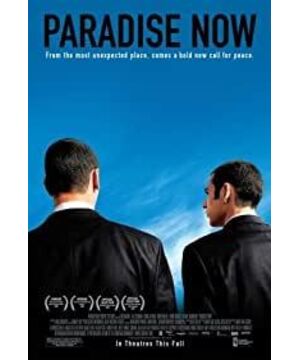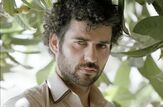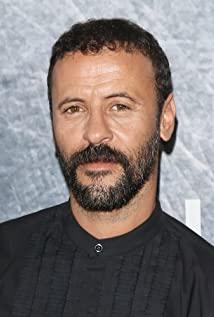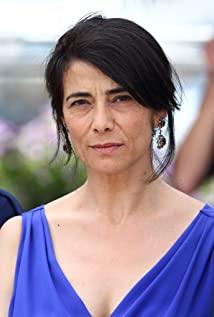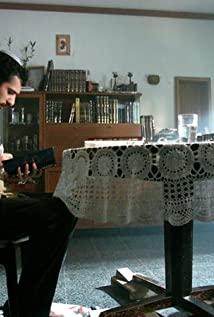Paradise Now Title : Paradise Now Director
: Hany Abu-Assad Screenwriter: Hany Abu-Assad Hany Abu-Assad Starring: Kais Nashef Suliman Ali Suliman Genre: Drama Level : PG-13 Duration: 90 minutes Dialogue : Arabic Country/Region: Netherlands/France/Germany Awards : The 55th Berlin Film Festival Blue Angel Award for Best European Film The 63rd The Golden Globe Award for Best Foreign Language Film is out of thin air , disturbed by mundane routines, and as always in the dilemma of life, perhaps it is impossible to imagine the entanglement between the two nations. I watched "Munich" as scheduled, but I didn't have many impressions: the topic seemed absent-minded, and the director explained the big background and the big theme from the perspective of pop culture to some extent, and the force of nature was not enough. Whether it is the Israeli Mossad or Palestine, it seems that it is right to stand on either side to think paranoidly. From the perspective of human nature, it is not so radical to understand the long-cherished wish of "peace", and "calling for reconciliation" is our "selfishness". ". "Heaven Now" is also from a Jewish director, and it is just another interpretation of the same theme. The story is very simple, the journey of two Palestinian "bombers" over several days. Syed and Kareid are small workers in the garage, and were honorably chosen to be the human bombs of Israel. The story, in the form of a documentary, shows two young Palestinians carrying explosives on their backs and detonating them after a strong ideological struggle. course.
Compared with the big background of "Munich", "Heaven Now" is completely based on the small to see the big, and a hopeless wish for "peace" that is almost helpless is pinned on individual trivialities. Compared with the plot of "Munich", the emotional journey of "Bomberman" is the highlight of the play. This complex emotion does not have a very obvious national integrity, but is extremely human. The human bomb between Palestine and Israel is not surprising, but the bomber who focuses on flesh-and-blood warmth makes the theme brighter.
Said's emotions are roughly divided into five aspects: nostalgia for the homeland, ignorance of the nation, hazy love, family ties, and sadness to end reality. Just as Jean-Paul Sartre said, "Love is a small experience of death", after a few thoughts, the human flesh bomb "died a little" for love and then decided to really die.
The nostalgia for the homeland, two bearded Arab youths sit on the hill, overlooking the hideous city, where the bustling Palestinian people live. The blue sky of the homeland is in stark contrast to the tall buildings, wide avenues, and leisurely beauties in Tel Aviv, Israel. From AD 623 to the last long dispute, we have been unable to distinguish right from wrong and righteous and evil gimmicks. It is precisely knowing that the overlapping area of Palestinian thinking and Israel's dream of restoring the state is the elegy of the entire human race.
The ignorance of the nation, the Palestinian youth read the martyr's oath to the camera, said the righteous words once, repeated it again, and repeated it again, already, the passion is no longer, and the only thing I can do is tell my mother where the "water filter" is cheap. The scene in the video rental shop in the back is even more ironic. The video of the "martyr" giving a generous speech is the same as the video rental price of the "collaborator" shooting confession, and even people are more interested in the shooting.
A hazy love affair, Syed's affection for the hero's daughter is the most sincere. His way of thinking is very different from hers, and Syed is curious about her... The audience will imagine a happy ending for humanity, and Syed will give up the plan under her persuasion, but that can only be done in the reading of "Grimm's Fairy Tales" Here, the tenderness of love touches my heart and the regret of reality leaves a deeper nostalgia.
The bond of family affection, "mother" is the embodiment of warmth in all ethnic groups. With deep-set eyes and anxiously waiting eyes, we read the only message—I pray for peace on that side.
Real tragedies are often the most complicated. According to the audience's intention, Said can live in peace. It is precisely the real tragedies that prompted him to board the Tel Aviv bus again. Said's childhood was shrouded in the shadow of his father's "collaborator". Perhaps apart from the nostalgia for his homeland, the ignorance of the nation, the hazy love, and the entanglement of his family, the only thing that made him get rid of his shame was way.
"Heaven Now" is helpless, ironic, and more stinged by reality. The story is the same as the reality, moving in a disorderly and illogical footstep, still remembering the phrase "love is a small experience of death". (Text/Changyou Fourth Hospital)
View more about Paradise Now reviews


